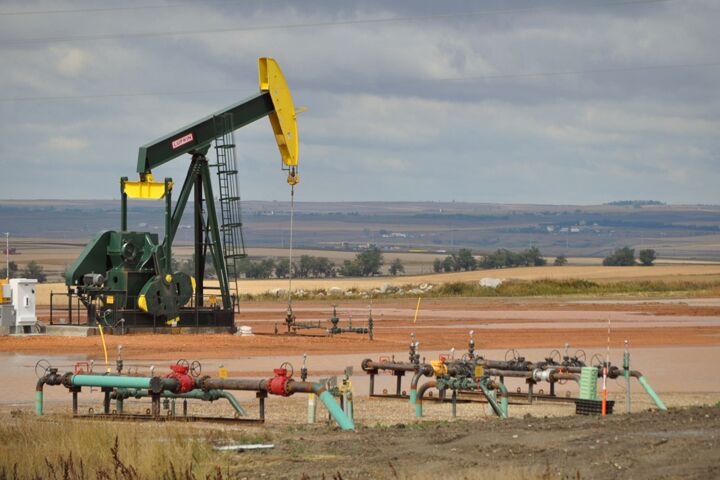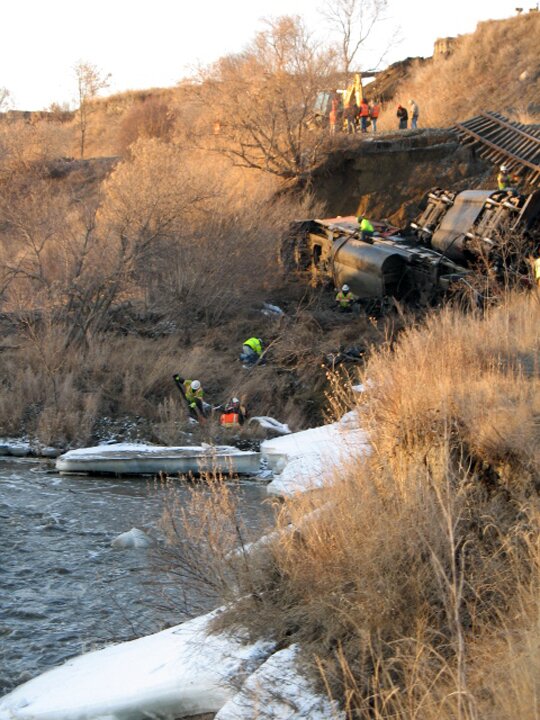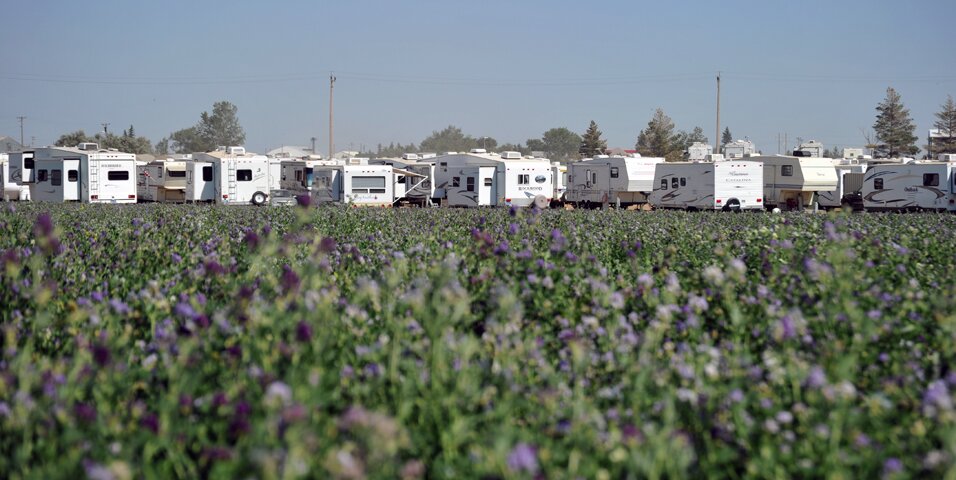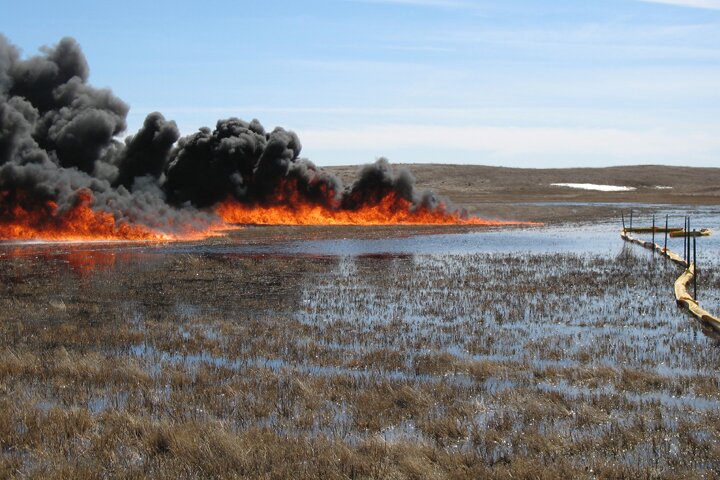
How the Oil Boom Is Changing North Dakota
If there are two things America needs now, it’s oil and jobs. North Dakota has both in spades.
But there’s a problem here. And it contains an important spiritual lesson—with an inspiring happy ending.
North Dakota is experiencing the biggest oil rush America has seen in decades. It is at the vanguard of an energy renaissance that has emerged thanks to advancements in resource extraction technology. A geological formation called the Bakken, which lies under parts of Saskatchewan, Montana and North Dakota, holds billions of barrels of now-extractable oil. In North Dakota, an estimated 27 to 45 billion barrels are accessible with today’s technology—out of total reserves of perhaps 900 billion barrels or more. Compare that to the Persian Gulf’s 747 billion barrels of proven oil reserves. Some say this could be the world’s largest oil discovery in more than a generation.
The payoffs are immense. For a country that imports 8.4 million barrels of oil a day—much of it from unfriendly foreign sources—the prospect of abundant homegrown energy is extremely attractive. In just the past year, oil output from North Dakota alone kept some $15 billion within the U.S. It has already pushed North Dakota past Alaska as the second-biggest oil-producing state in the union.
More immediately, as nationwide unemployment remains above 8 percent, North Dakota, with its rate at less than 3 percent, is drawing an exodus of job-seekers. One in every 10 job openings last year were oil jobs. Oil-rig workers earn six-figure salaries; even truck drivers make an average of $70,000.
The needs are huge, and pressing. But there is a downside.
As with anything else where there is a heap of money to be made, greed, self-interest and shortsightedness are creating some terrible side effects.
Western North Dakota’s vast expanses of rolling prairie around the state’s thriving oil zone were once among the most beautiful and picturesque parts of the state. “We had such a magic place,” says Dan Kalil, a third-generation North Dakota property owner and farmer, and now chairman of the Williams County Commission. The oil boom, though, has drastically changed the culture and landscape. Kalil laments, “We are seeing the wholesale industrialization of western North Dakota.”
Now, undulating pumpjacks rise from the prairie. Uninviting, crackerbox communities are popping up. Workers cram into makeshift camps. Unsightly industrial trash is accumulating. Fields are littered with blown-out semi tires, cracked hardhats, orphaned work boots and cigarette butts.

The oil mecca’s surging production requires transportation, and there aren’t many pipelines. Thus, it must be moved by truck or train. Just in January of this year, 100 new trucking companies started up. Traffic is exploding, and it is overtaxing and destroying a road system built for farm-to-market travel, largely gravel or dirt roads. In one county with only 7,000 residents, oversize and overweight truck traffic caused almost $200 million in road damage. Another county, in exasperation, completely closed its road system to oil trucks.
Western North Dakota has only three rest areas over hundreds of miles, so drivers often toss trash out their windows as they blaze through the region. The ickiest item locals are finding: “trucker bombs”—discarded plastic pop bottles and gallon jugs full of urine. Volunteers who were once enthusiastic about removing trash are grossed out and dwindling in numbers. Landscaping crews have had to equip mowing tractors with cabs so drivers don’t get a toxic shower when they mow over one of these containers.
It’s a disgusting symbol of the myopic self-interest driving so much of this boom: people looking to get all they can, heedless of how it will affect the area in the long term.

North Dakota is home to four of America’s 10 fastest-growing counties. The population explosion has created a serious housing shortage. Hotels are overbooked. In the city of Tioga, groups of truckers sleep in their rigs and shower in public bathrooms. The local radio station recently closed shop to convert into a more profitable RV park. The fortunate few who can find lodging in Tioga pay rents that rival those of major cities, topping $1,200 a month for a two-bedroom unit. In Williston, median home prices doubled over four years. Many families end up living in cheap, trashy housing.
Oil companies are filling the housing void with “man camps,” temporary lodgings that can be trucked in and out of the area. In New Town, one trailer park where some 90 families have lived for decades was sold to new owners, who doubled the rents and sent eviction notices to residents in order to make room for oil workers.
Schools are overwhelmed with new students. Daycare centers have closed their waiting lists; some of them don’t even answer the phone anymore.
Having so many young men without families in such close quarters has led to problems. In towns with strip clubs, strippers can earn big money; they say most of their customers are married men who moved to North Dakota without their families. In many areas, crime is soaring. In the Southwest Judicial District, felony cases jumped 85 percent between 2006 and 2011. Dickinson, a town of nearly 19,000, saw assaults significantly jump beginning in 2008. Longtime residents lament having to lock their doors for the first time.

There are also environmental concerns. One problem with the fracking process is the tremendous volume of water—a precious commodity in its own right—that it converts into unusable waste. (Robert Morley wrote about this last March.) “North Dakota’s regulations do set guidelines for the disposal of waste … [but] there aren’t enough inspectors to keep watch, and residents frequently complain of waste disposal, flaring, and small spills or leaks,” reported the Washington Post. “Oil and saline water spills, while usually small, are frequent, and the state lacks the manpower, and perhaps the inclination, to crack down.”
“We all need the oil. We all drive cars. We all heat our homes,” the Post quoted one rancher saying. But, he said, “the state is letting us down. They all have dollar signs in their eyes. They have the regulations on the books, but they are not enforcing them.”
Dollar signs in the eyes. “At 11.5 percent of every dollar per barrel of oil going to the state, the state is reaping the benefits of this boom,” said Kalil. “There’s not much interest in slowing that down.”
The love of money is the root of terrible evil, said the Apostle Paul.
In this case, the needs are huge, and pressing, and there is much that could be of tremendous help to America. But the way of get always comes with a steep downside.
North Dakota’s oil boom squarely illustrates many problems endemic to our world that stem from unchecked human nature. As the Prophet Isaiah foretold, “The earth is drooping, withering … and the sky wanes with the earth; for earth has been polluted by the dwellers on its face” (Isaiah 24:4; Moffatt).
Thankfully, though, Isaiah also spoke of a time coming—very soon—when God would intervene to deliver mankind from these problems. The first thing God will do is rid human society of the influence of the devil (Revelation 20:2) and thus begin to purge mankind of his evil, selfish nature. People will then be taught God’s laws under Christ’s rule (Isaiah 2:3-4).
The revolution this will create will have several wonderful effects. Among them: universal prosperity without greed; the discovery and widespread use of clean, non-polluting energy sources; a flourishing of the world’s ecosystem; and inviting, livable cities with strong families at their heart.
Look at the problems that result when man tries to solve his problems without God—and the need for that world to arrive is abundantly clear.
